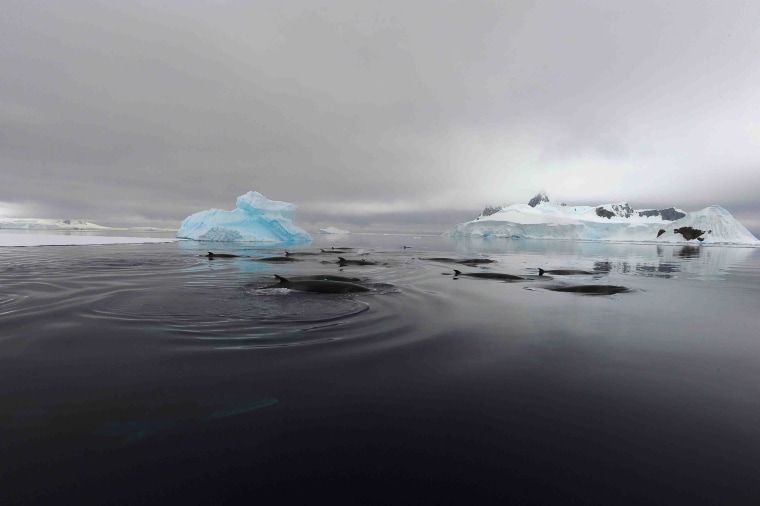A mysterious duck-like sound recorded in the ocean around Antarctica has baffled scientists for decades, but the source of the sound has finally been found, researchers say.
For more than 50 years, researchers have recorded the so-called "bio-duck" sound in the Southern Ocean. Submarine crews first heard the oceanic quack, which consists of a series of repetitive, low-pitched pulsing sounds, in the 1960s.
"In the beginning, no one really knew what it was," said Denise Risch, a marine biologist at NOAA Northeast Fisheries Science Center in Woods Hole, Mass. Because the sound was so repetitive, scientists first thought it might be human-made, possibly coming from submarines. As time went on, people suggested a fish may be making the sound, but it seemed too loud, Risch told Live Science. [Listen to Mysterious Bio-Duck Sound]

It turns out, Antarctic minke whales actually produce the duck-like sound, Risch and her colleagues have found. Years' worth of audio recordings will now provide a wealth of information on the abundance, distribution and behavior of these elusive cetaceans, the researchers said in their study, detailed today (April 22) in the journal Biology Letters.
The bio-duck sounds come in sets spaced about 3.1 seconds apart. The noises also occur seasonally, and have been heard simultaneously in the Eastern Weddell Sea off Antarctica and Western Australia.
In February 2013, during the Southern Hemisphere's summer, Risch's colleagues tagged two Antarctic minke whales (Balaenoptera bonaerensis) off of Western Antarctica with suction-cup tags. The researchers meant to study the whale's feeding behavior and track their movements.
The tags also contained underwater microphones, and Risch analyzed the acoustic recordings. She found they contained the duck sounds, as well as downward-sweeping sounds previously linked to the whales. The sounds "can now be attributed unequivocally to the Antarctic minke whale," Risch and her team wrote in the study. The researchers don't know for sure whether the tagged whales or other nearby minke whales made the sounds.
What the sounds mean in whale-speak remains a mystery to scientists. The whales may use the sounds for breeding or navigation, Risch speculated. The researchers don't know, either, whether only males make the sounds or females also partake. For example, male humpback whales, unlike females, perform complex songs during their mating season.
— Tanya Lewis, Live Science
This is a condensed version of a report from Live Science. Read the full report.
Follow Tanya Lewis on Twitter and Google+. Follow us @livescience, Facebook & Google+.